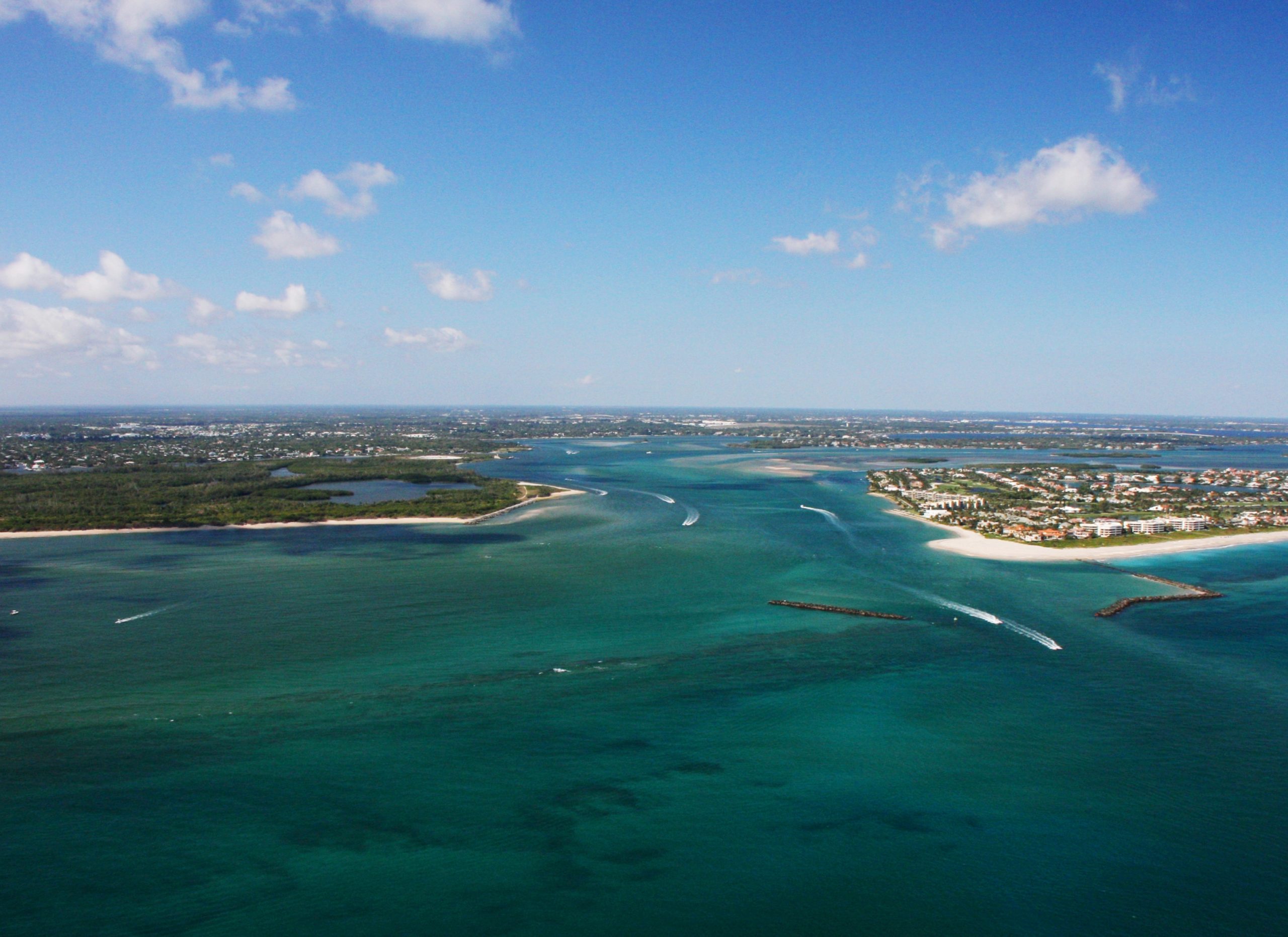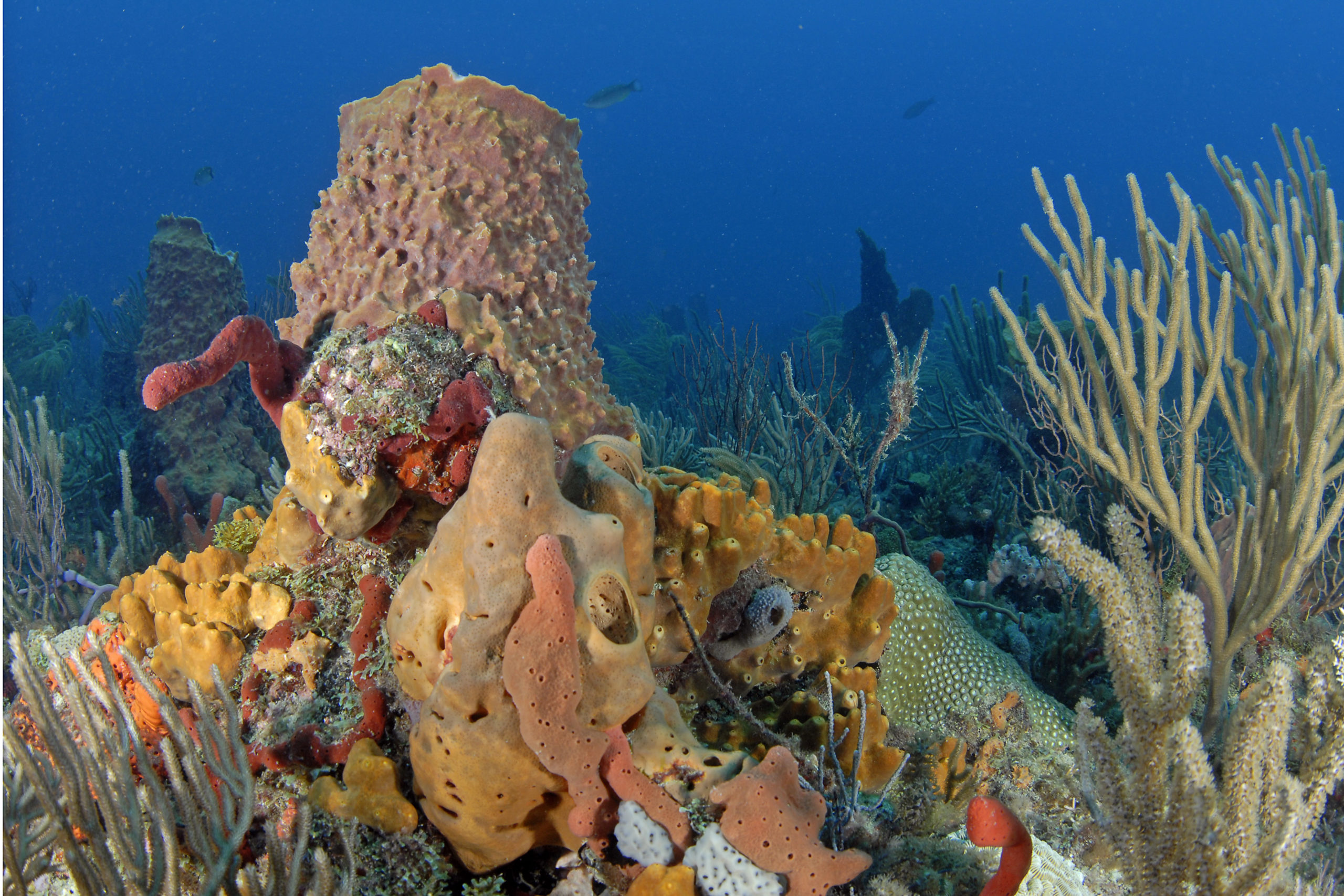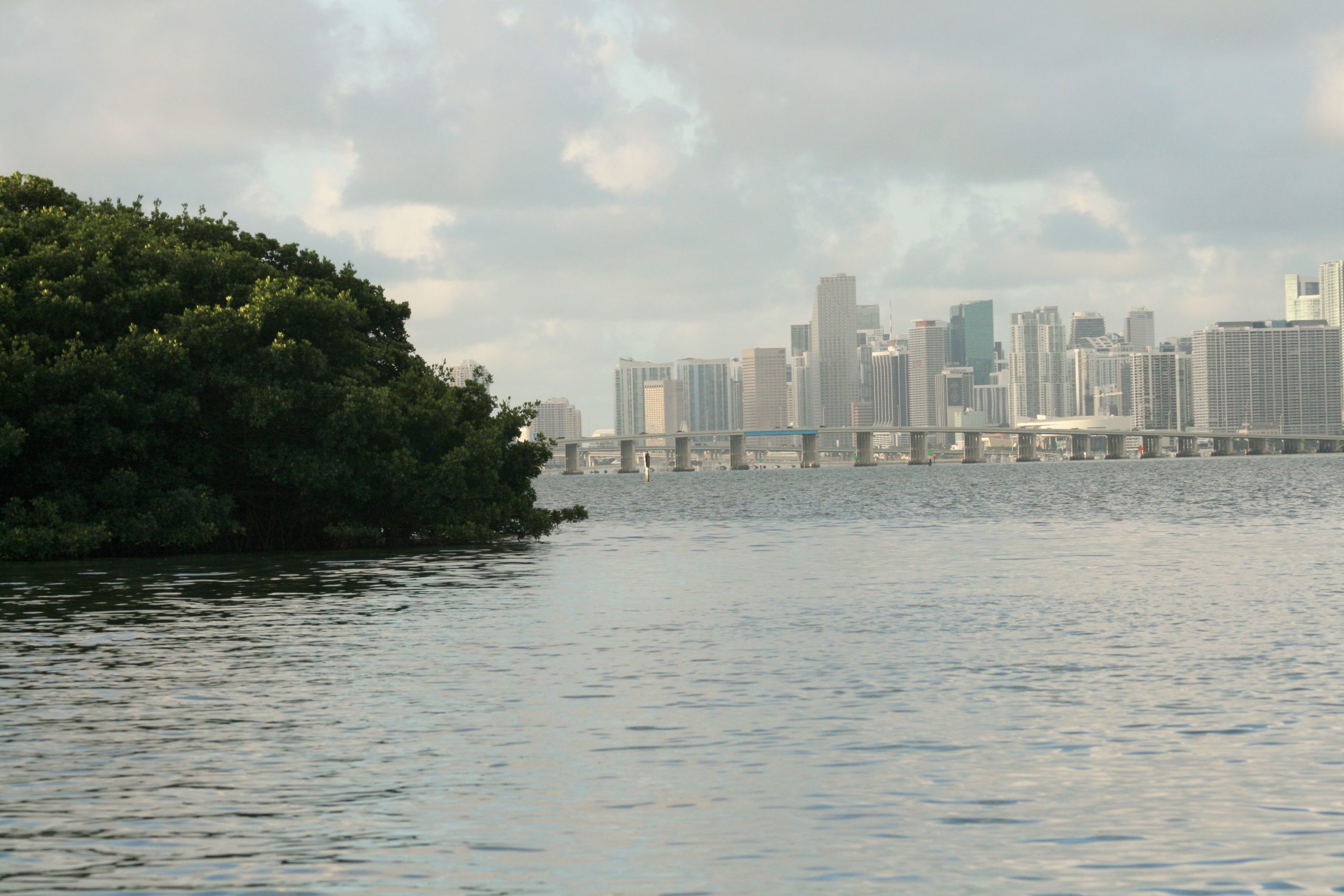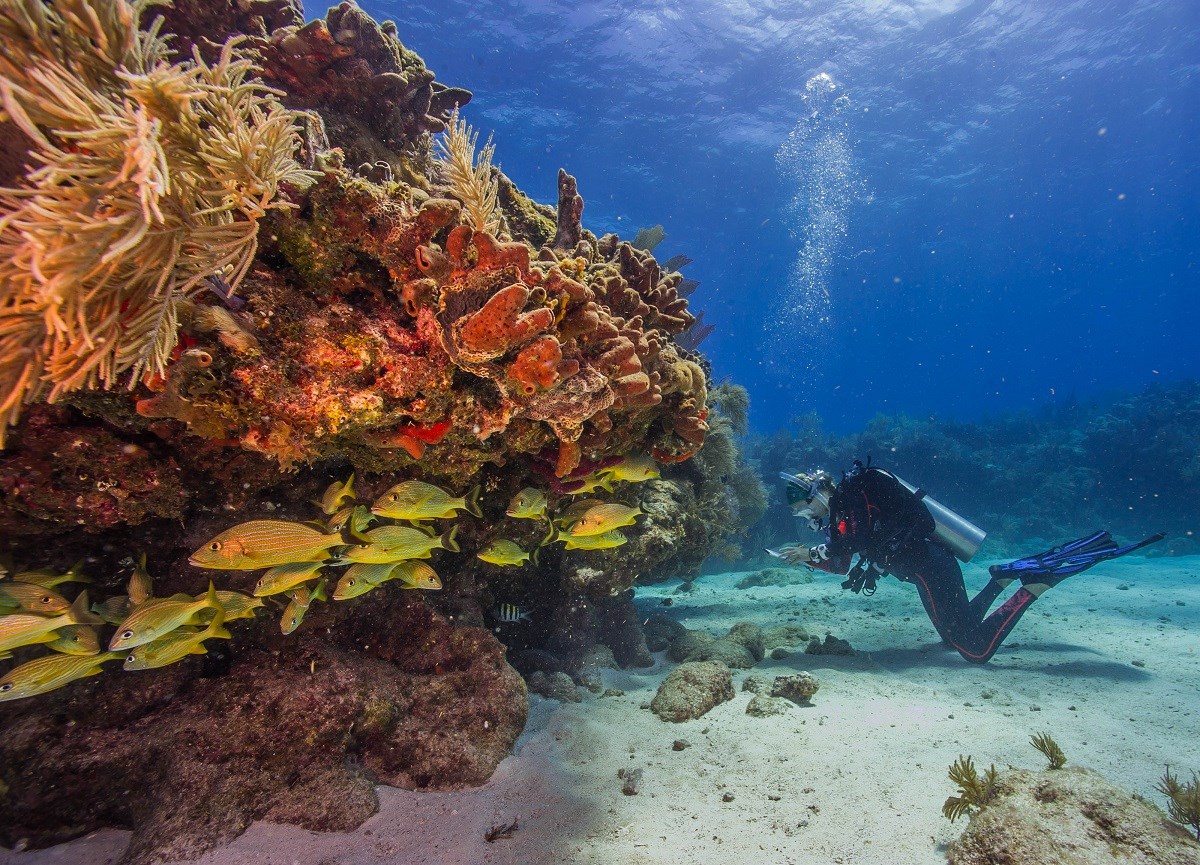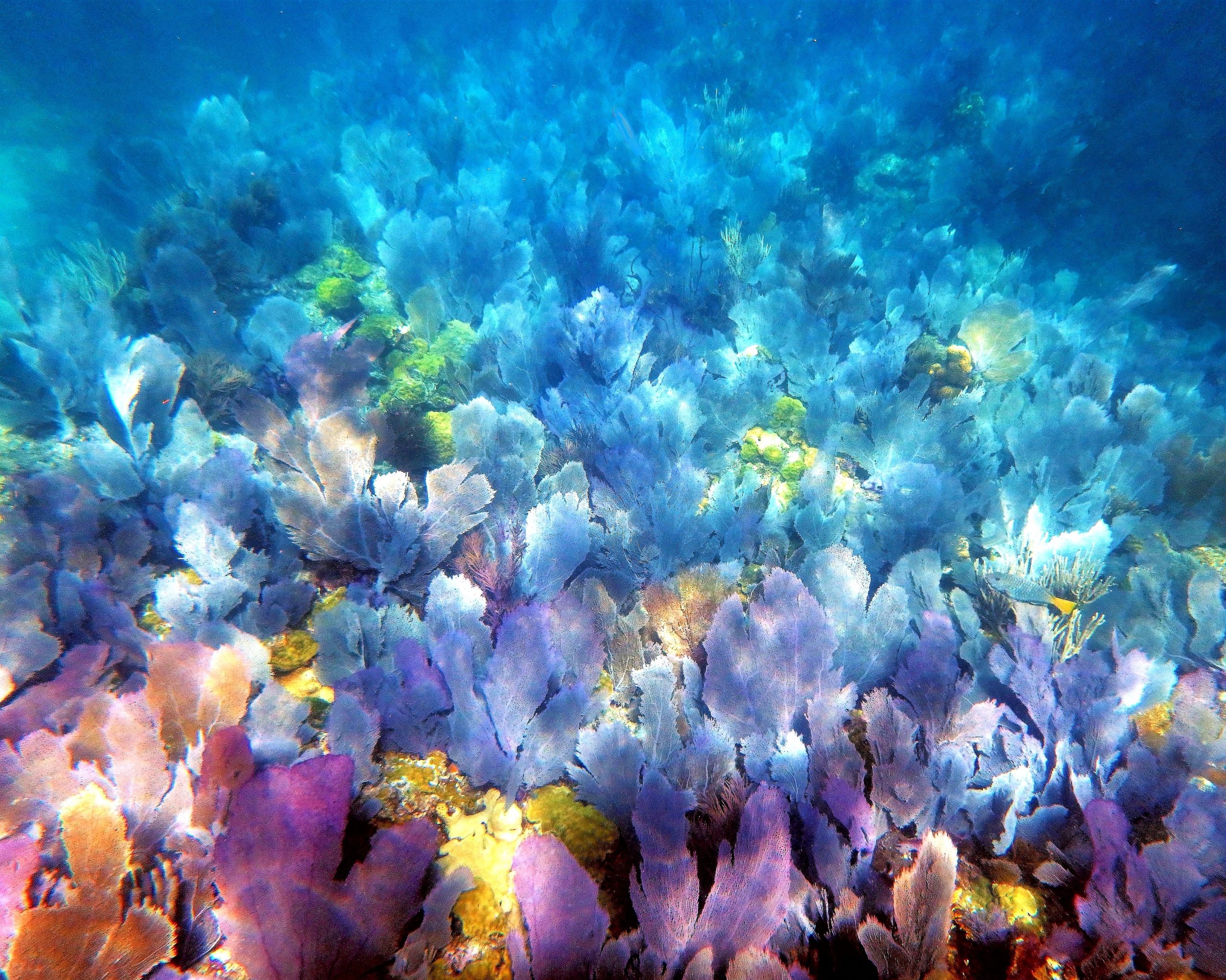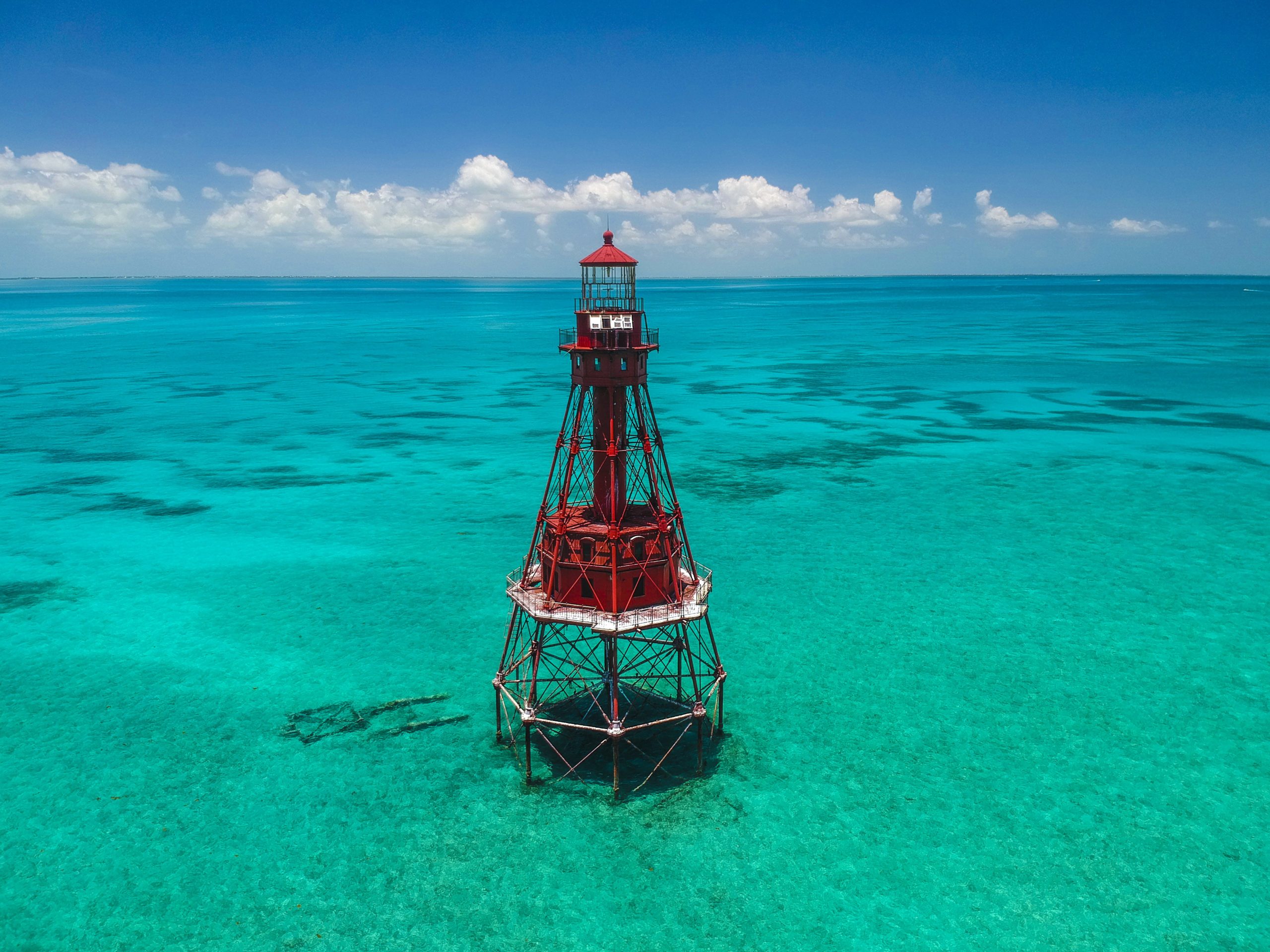Products, Pollution and Litter
Many serious coral reef ecosystem stressors originate from land-based sources, most notably toxicants, sediments and nutrients.
Impacts from land-based sources of pollution – including sediments and debris from coastal development, excess nutrients and fertilizers/pesticides from agricultural and urban runoff, and improperly disposed oil and household chemicals – are introduced to Florida’s Coral Reef via stormwater runoff. When land-based pollutants accumulate in coral tissues, they can impede coral growth and reproduction, disrupt overall ecological function, and contribute to increased disease, bleaching and mortality in sensitive coral species.
Sedimentation can bury corals, leading to tissue death, and is linked to reduced coral recruitment. Nutrients stimulate excessive algal growth that limits the amount of light available for coral growth and reduces the amount of oxygen in the water. Pharmaceuticals and personal care products, including certain sunscreens, lotions and other cosmetics, can impact coral reproduction and juvenile development. The presence of land-based sources of pollution can exacerbate the effects on Florida’s Coral Reef from other stressors such as increased temperature. Together, they create unique management challenges.
Litter, plastics, and other marine debris are a widespread problem in Southeast Florida and often stem from activities on land and in waterways.
Abandoned or discarded fishing and boating materials, lost dive equipment, plastics, household items and hurricane-related debris are becoming increasingly more common on Southeast Florida reefs.
Once the litter enters the water column, it can cause direct and indirect impacts on coral reefs and other marine organisms resulting from entanglement, abrasion and ingestion.
Responsible Practices for Reducing Pollution
- Reduce single-use plastic consumption and check your local recycling regulations to be sure you are recycling items properly. Proper disposal of all waste helps lessen marine debris in our oceans.
- Volunteer to clean your local beach or waterway to act locally and make an impact globally. Find a local shoreline or reef cleanup to join, or record the trash you collect on your own using the Clean Swell App.
- Conserve water in your home to minimize the wastewater that eventually finds its way to our oceans. Consider using rain barrels to capture and reuse rooftop rainwater.
- Combat marine debris and litter by reporting any large debris items to SEAFAN.
- Choose your sun protection wisely. Some chemicals commonly found in popular sunscreens have been shown to build up in coral tissues. When you are diving, snorkeling or at the coast, the best option is to avoid these products by opting for long-sleeve ultraviolet protection factor (UPF) clothing, sunglasses and hats, or by using mineral-based sunscreens that are free of oxybenzone or octinoxate.
- While boating, sailing or on a dive tour, reduce waste and properly dispose of trash or litter.
- Encourage all guests to use the boat’s head prior to entering the water.
- Use biodegradable toilet paper and phosphate-free cleaning products and minimize their entry into the marine environment wherever possible.
- Do not wash dishes at anchor or discard any food scraps.
- Petroleum products in the bilge should be broken down with biodegradable detergents and pumped into vessel storage containers on board, then disposed of at a recycling depot on shore.
- Follow the principles of Florida-Friendly Landscaping to reduce pollutant loading to Florida’s Coral Reef.
- Use fertilizers, herbicides and pesticides appropriately and only as needed.
- Manage yard pests and dispose of pet waste responsibly.
- Garden and irrigate efficiently. Choose native plants that require less water.
- Build rain gardens and bioswales to reduce pollutant-laden stormwater runoff draining from the landscape.
- Retain low-maintenance zones along any waterbody.
- Properly dispose of household products and chemicals.
- Do not dump paint, oil, antifreeze and other household chemicals into street gutters or storm drains.
- Clean up spilled brake fluid, oil and grease.
